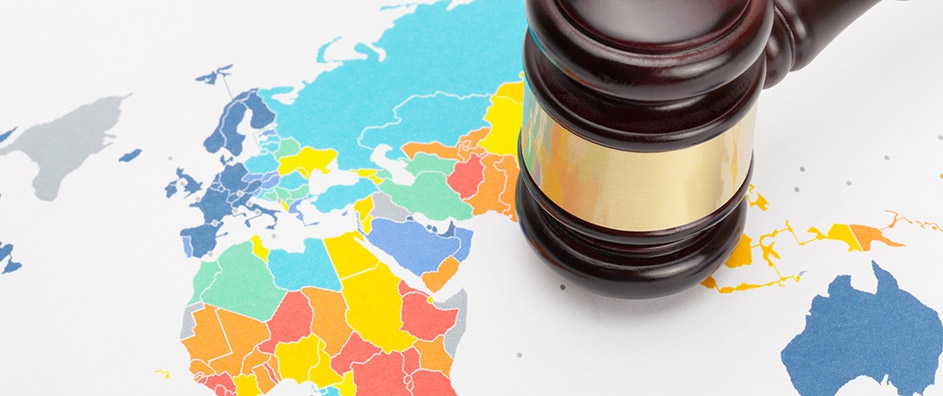The views expressed in our content reflect individual perspectives and do not represent the authoritative views of the Baha'i Faith.
Today we have several international courts of justice in the world—but none of them have the jurisdiction or the power to bring about a global peace.
The Baha’i teachings, since their founding by Baha’u’llah in the middle of the 19th Century, have implored humanity to establish an international court of arbitration and justice for resolving disputes between countries, where the world can enforce its laws and where nations can seek an end to war:
Baha’u’llah had said that the functions of the International Court would be to settle disputes that arose from time to time between the nations; to define the exact boundaries of the different countries, and to decide what number of soldiers and guns should be maintained by each nation, according to its population, in order to preserve internal order. For instance, one country might have ten thousand soldiers, another twenty thousand, another fifteen thousand, and so on, in accordance with the size and population of the nation; also if any people rebelled against the decision of the Court and rejected it, the Court would empower the others to join their forces and to endorse their decision, if need be, by united action.
We had not seen any of these things actualized as yet, but we should do so in the future. – Abdu’l-Baha, Abdu’l-Baha in London, p. 70.
This court, the Baha’i teachings say, will be the world’s ultimate Supreme Court, an international body meant to prevent war, the greatest crime against humanity:
A Supreme Tribunal shall be established by the peoples and Governments of every nation, composed of members elected from each country and Government. The members of this Great Council shall assemble in unity. All disputes of an international character shall be submitted to this Court, its work being to arrange by arbitration everything which otherwise would be a cause of war. The mission of this Tribunal would be to prevent war. – Abdu’l-Baha, Paris Talks, p. 156.
Following that exact principle, the Baha’i International Community asked the United Nations, during its Charter Revision Conference in 1955, to give that International Court of Justice “compulsory jurisdiction” in all cases where nations disagree:
IX. In the interests of Justice, which is the only principle upon which the edifice of durable peace can be raised it is proposed that the International Court of Justice be given compulsory jurisdiction in all legal disputes between states and Article 35 of the “Statute of the International Court of Justice” be amended to read:
1. The jurisdiction of the Court comprises all cases and all matters especially provided for in the Charter of the United nations or in treaties and conventions in force.
2. The states parties to the present Statute declare that they recognize as compulsory ipso facto and without special agreement, the jurisdiction of the Court in all legal disputes concerning:
a. the interpretation of a treaty;
b. any question of international law;
c. the existence of any fact which, if established, would constitute a breach of an international obligation;
d. the nature or extent of the reparation to be made for the breach of an international obligation;
3. In the event of a dispute as to whether the Court has jurisdiction, the matter shall be settled by decision of the Court. – from the Baha’i International Community’s recommendations to the 1955 United Nations Charter Revision Conference.
Try to imagine such a court, if you can. Rather than war as the first option between countries with conflicts, think of how remarkable it would be if nations could submit their grievances and issues to a neutral body, one governed by accepted international law. The decisions of that body would be binding on those nations, just as the decisions of lower courts are binding on individuals. If a country went against a decision of the court, as a last resort all other countries would agree to enforce that decision.
Since all the nations of the world are now economically interdependent, and no country can exist without international trade and commerce, the enforcement of those decisions would not necessarily have to involve military force—it could operate and enforce its decisions through economic means, with embargoes and trade restrictions, and could soon compel countries to obey the just decisions of the court.
Consider it for a moment: If nations are governed by laws, why shouldn’t all nations be governed by international law? If one nation’s belligerence or aggression creates wars, why shouldn’t all other nations rise up to stop the aggressor? If war harms everyone, isn’t it in the interests of humanity to stop it?
















Comments
Sign in or create an account
Continue with Googleor